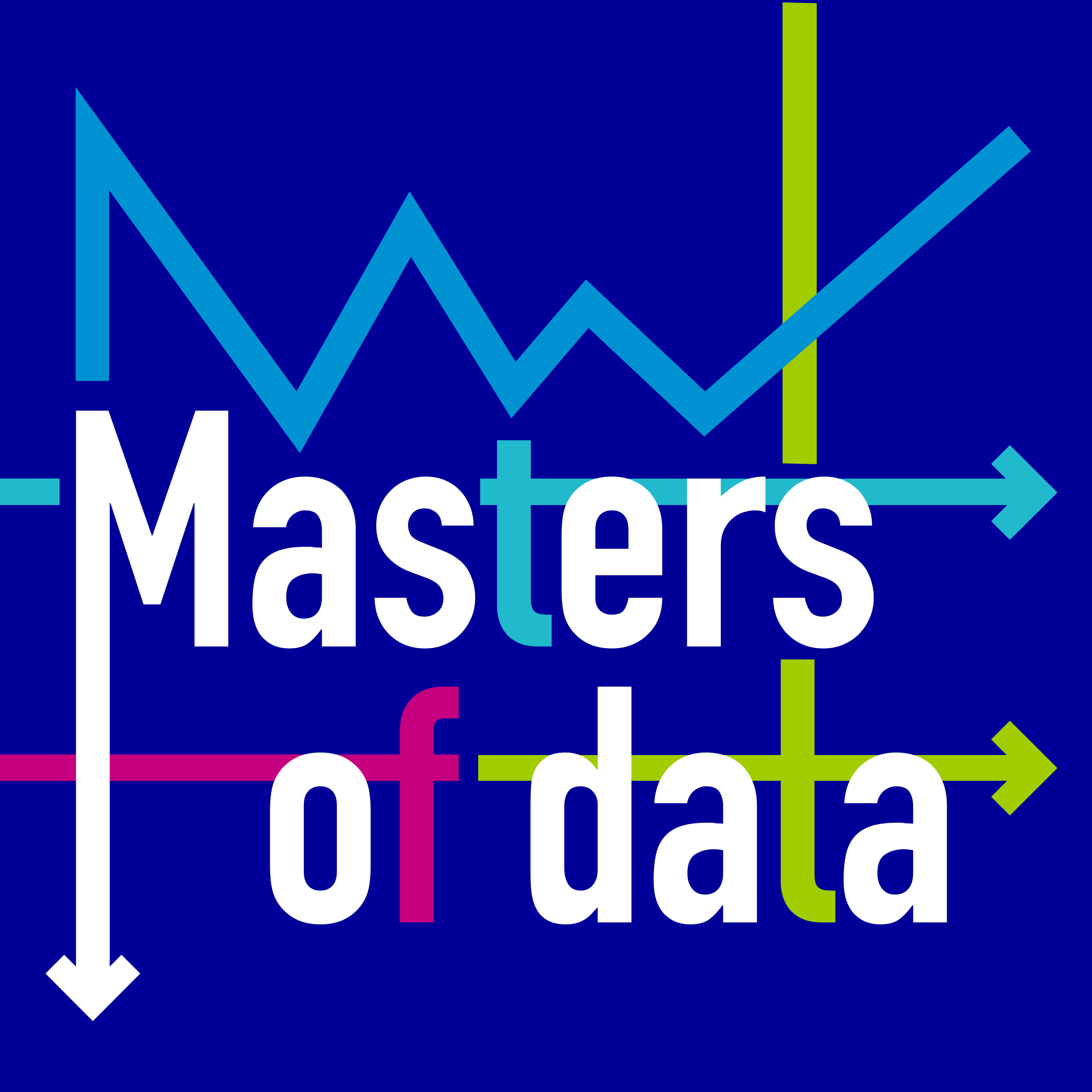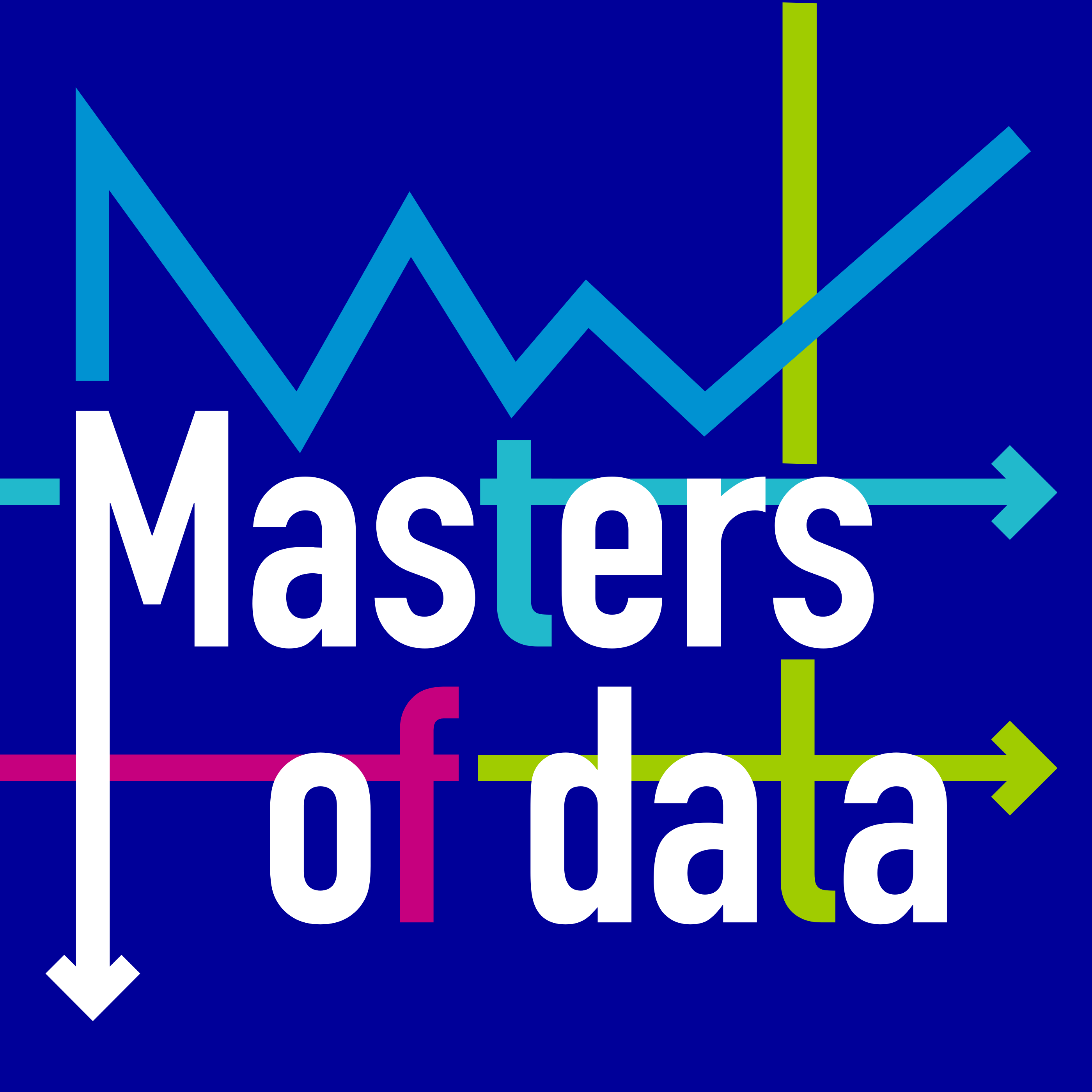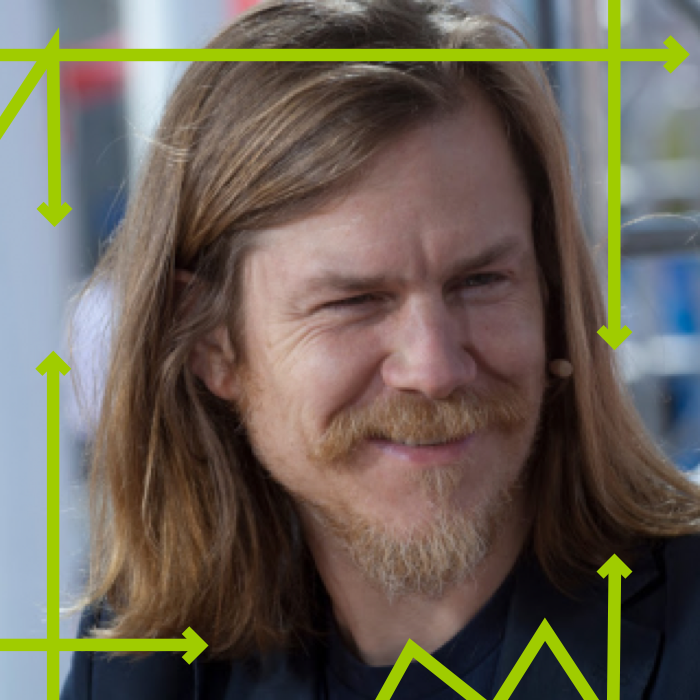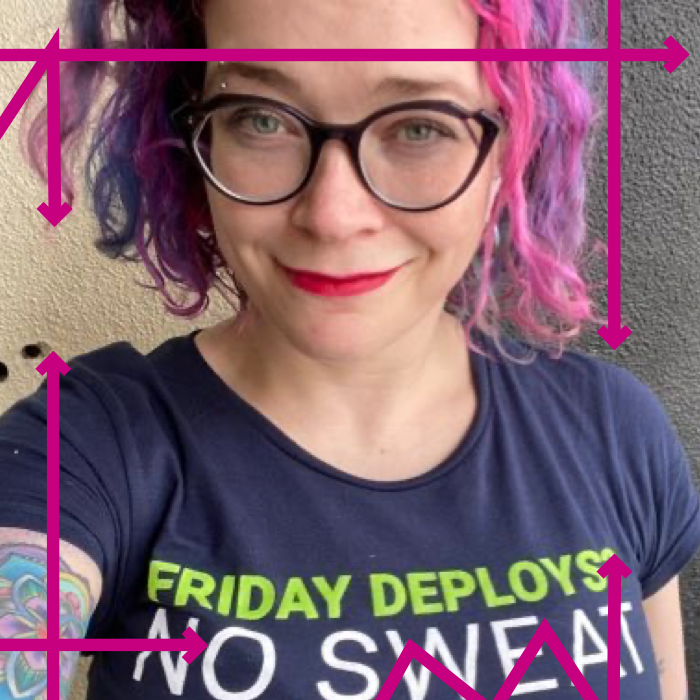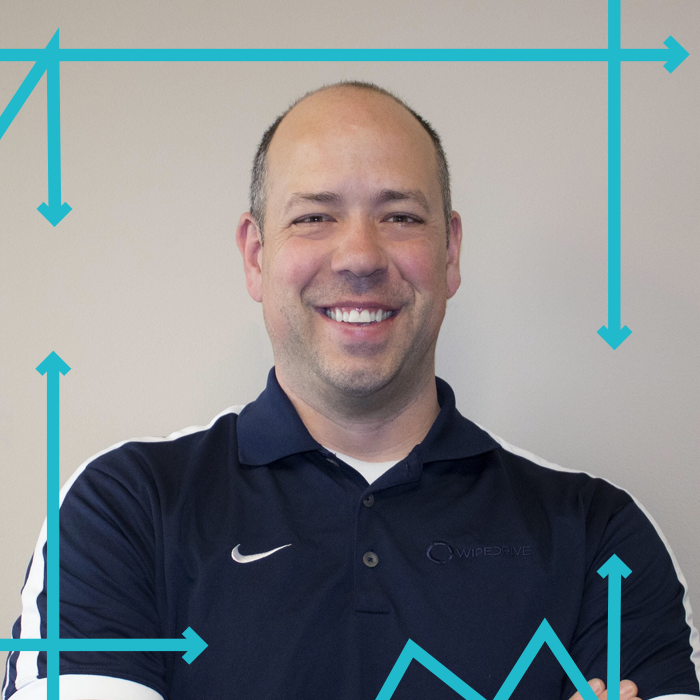Building Trust from the Ground Up (Guest: Sarah Guo)
- 0.5
- 1
- 1.25
- 1.5
- 1.75
- 2
Ben: Welcome to the Masters of Data podcast, the podcast that brings the human to data, and I'm your host, Ben Newton. The world of start-ups moves incredibly fast, and I for one have found that venture capitalists have a very unique vantage point from which they can synthesize a really deep understanding of what innovation is actually going on. That is literally part of their job. Our guest in this episode, Sarah Guo, is a partner at Greylock Partners, a venture capital firm in Menlo Park, California. In only five years with Greylock, Sarah has already cemented a reputation as a savvy operator that understands what it is entrepreneurs go through, and also maintains an impressive network of relationships beyond the C-Suite that give her unique insights. I interviewed Sarah on the floor of Sumo Logic's user conference, Illuminate. So without any further ado, let's begin.
Ben: Welcome everybody to the Masters of Data podcast. I am so excited to have Sarah Guo with me from Greylock. Welcome to the show.
Sarah: Thanks for having me. Really excited to be here, Ben.
Ben: We're actually at the Sumo Logic conference and she just did a panel with us, so it seemed like a perfect occasion to sit down with you and talk to you about what's going on. You know, I was actually doing some research on you. You have an amazing story. You're the ... I mean, I guess you're still the youngest general partner at Greylock, right?
Sarah: That's right.
Ben: Tell us how you got there. How did you get to that point? What's your story?
Sarah: Sure. So I've been at Greylock for the last five or so years, investing and working with my partners across a whole range of things. We largely do enterprise and consumer technology investments, and I actually was recruited to the firm by two of my former partners, Aneel Bhusri, who is the founder of Workday, and Joseph Ansanelli, who is the founder of one of our companies, Gladly. And I had gotten to know Aneel in my time working at Goldman Sachs and doing the Workday IPO, and doing principle investing for Goldman, and just really respected him as an investor and as an operator. Before that, I had been on two different entrepreneurial journeys. So the choice to come to Greylock was an opportunity to be a part of great entrepreneurial journeys across a broad range of technology and try to move the needle for these companies, and five years later, here I am.
Ben: And what's it been like so far? What's most surprised you about the role on the venture capital side?
Sarah: I'm constantly amazed at the progress our companies make and the growth that individuals go through against all odds, I guess. Right? Because, I mean, you joined Sumo very early. These companies, we largely invest at the earlier stages, so many of my companies that I've been privileged to be a part of, it'll be three people or ten people and an idea, and a little bit of ... they might have stood up their GitHub instance a few weeks ago, right? And being a part of these companies and just seeing them grow teams, lead teams of scales they've never done before, grow into different roles, hire great execs, bring on customers, and then user bases that then rely on the products. And just seeing that happen over such a compressed time span, I'm inspired by the journey, and I think when you look at these companies, you often look around and you're like, "Oh my God, that's a real business with millions of dollars in revenue. We have to make this work now." So I go to work really excited about that every day.
Ben: Yeah, and that makes sense. And that was definitely one of the things, when I was reading about what people were talking about you, that seems to be one of the things you really bring to the table, is you form those relationships, and that's pretty important to people at that early stage, is to be able to get that partnership and that close relationship with someone that can help them make that transition, so I think that's pretty cool.
Sarah: And I think there's a lot ... I love being part of our companies when they scale and succeed, and Sumo is now further along in the journey with over a thousand customers and everything, but I think that there's magic that happens in sort of getting the initial product market fit right and getting the beginning of the go to market engine right or the distribution engine for a consumer business, I love working on that first piece.
Ben: It sounds like you're having a lot of fun. Well one thing when we were talking about a few things that we could talk through, I've been interviewing a couple of people at the conference, and there's this theme that's kind of coming up around trust. And in particular, anyone who reads the news is going to know about things like Facebook and things like that, but even ... it seems like there's a higher expectation that people are thinking about when they're interacting with a company about, "Do I trust you? Do I trust you with my data?" So I'm really, really interested to see how you're thinking about that now. Where are you seeing trends in the marketplace in talking with these start-ups about trust?
Sarah: So you could have labeled me a cynic in terms of consumers caring about privacy, data, and trust previously. I would have said, "Organizations that serve customers need to do this for risk reasons, for principles, for regulatory reasons." But not that many consumers would have made the decision on who to do business with based on trust and what you did with their data, and I feel very differently about that now. And I think there have been a few watershed events in terms of people just understanding how much data is being collected in order to serve people digitally today. I think one thing that companies are going to have to reckon with and are beginning to reckon with over the coming years is, it's not even just a security of customer data or IP problem, where I've got a database of user credentials somewhere, I need to make sure it's not breached, and I need to make sure I have responsible encryption and a bunch of different things around that. There are so many product decisions that have a security and privacy angle today, that I think we're going to see those skills and that thinking embedded in the product organization because that's the only way you're going to make principle decisions about this stuff.
Ben: And what kind of skills do you think are needed there? Is there a gap in terms of the skills that are needed to address those problems?
Sarah: I don't think that there are enough people out there that have the broad range of understanding that you need to have to make these product decisions, right? You need to understand data security from a technical perspective. You need to think about the principles of how you want to treat your customers, which is a product, and leadership, and business question, and you need to understand the regulatory environment, right? So that's a pretty high bar for somebody making a decision about how should we treat data in this customer application, but I think it's something that organizations are going to be investing in.
Ben: That's interesting you say it that way because I was talking to a leader at a cosmetic company, and one of the things she was saying, she was looking for polymaths, is the way she put it, people with a broad set of skills where she can teach them the particular skillsets that are maybe needed for that particular business, but she's looking for people that actually enjoy broadening themselves over a range of subjects. Does that make sense to you?
Sarah: Definitely. And I think it's going to be a set of product decisions that require trade-offs or investments for the future, right? Because it's going to require companies to say, "We won't acquire users that way." Or, "We'll turn away these ad sales." Or, "We're going to take on the overhead cost of storing this data in this way in this location." But I do think over the long-term, when I said I'm less of a cynic about consumer focus on privacy and trust today, if you look at the surveys around how millennials choose the brands that they want to be in business with or even employed by, I think it matters much more now, and that those investments will pay off in longer term.
Ben: What do you ... do you feel like in that case, do you feel like millennials and just the younger generation in general have a better appreciation for that, or is this kind of broader? What's your sense of that?
Sarah: I definitely think a piece of it is that millennials, Gen Z, there's a generation of people that are younger than you and I that grew up digitally native, right? So they are so fluent with internet services, and communication tools, and smart phones, in that they just have a better sense of what it means to be surrounded by this technology all the time, so they're more cognizant of what is happening with their data.
Ben: Yeah, that makes sense. Well you know, one thing too, when I was talking to you, you were actually on stage with him, John Visneski over at Pokemon, so when we were talking, we were talking a little bit about ... you know, I have a seven year old and a four year old, and my seven year old, I get her playing some games, and I realize very quickly that there are certain game developers I trust and certain ones I don't, and it happened very quickly because there's a certain game developer I feel like everything they've come out with is ... they're not leading her down the wrong path, they're not showing her the wrong types of things, they're protecting her data clearly. There's a couple other ones where they clearly did not do that. When you're talking with these companies that are starting to build a brand, how do they build that brand of trust? Because that seems like that's going to be really hard to do, and once you lose it, it's very hard to build back up.
Sarah: When we invest in early stage companies, at ten people, you're not going to have somebody that runs security. The point at which people invest in security varies based on the sensitivity and the type of product that they're building, but I do think at a board level with our companies, we talk about the decisions around consumer privacy, customer trust, from the very beginning. So I think the role of the board or Greylock's view as investors is to make sure that we're aligned on the principles of how you treat your customers very early on, and also to give people context as to, you don't have to be a very big company to have valuable data and to be a target. So I think making sure people aren't surprised by that, making sure that they invest ahead, and that they're prepared for growing scale and growing attractiveness to hackers and are ahead of it is one thing that we think about.
Ben: No, that makes a lot of sense, and I think sometimes with people, I think I even saw an article where somebody interviewed you, it's like, why somebody needs a venture capital partner, and it seems like that's part of it, is that you guys have that longer term viewpoint. When you're starting and you're building a product, you're like, "I've got to build this product. I've got to make sure it can actually stand up." You're focused on the engineering, but if you don't think about those bigger, longer term topics early on, it can be really hard to correct later on, I would expect.
Sarah: Yeah, absolutely. We are ... don't get me wrong, we are growth oriented as early stage investors. A company has to get the initial momentum of getting into customer, consumer hands, and that's a speed of feature delivery and speed of distribution challenge, so that is definitely the first order of focus, but like you said, we want to make sure that's balanced in decision making with what are the risks that come along with it.
Ben: Yeah. Yeah, that makes sense. Well kind of switching topics here, another thing you and I talked a little bit about, obviously being at Sumo Logic, I wouldn't be here if I didn't love analytics, analytics comes up a lot, but I think, at least from my limited vantage point, it seems like there's a change going on because when I first came on to the company, this was over six years ago really, big data was the big word. Everybody was gathering data for the sake of gathering data it seemed like, and trying to do things with it, and it seems like something has changed there too, because you actually have to prove that you can make use of the data, you can actually act on the data, make it actionable and actually provide value to customers and things like that, so there's a couple different people including Ramin, CEO of Sumo Logic, is talking about the analytics economy, but it seems to be trying to get around this idea of can you actually drive value for your customers out of your data. What's your viewpoint on that? What are you seeing? What's going on from your vantage point?
Sarah: It's a good question, Ben, and it's a topic that we think about internally in terms of thesis areas. We talk to Fortune 500, Global 2000 leaders about their technology strategies all the time, and one thing that we do talk about is the idea of the self-driving business, the model driven business or the analytics driven business, right? Many different terms. And I think one of the reasons everyone is paying attention, and one thing I hear from our partners is ... from our corporate partners is, like, "I don't want to get Amazon-ed or Uber-ed or Netflix-ed." Because you see these full stack companies that have a great data stack that allows them to deliver new customer experiences that drive incredible growth or margin in a way that, traditionally, businesses can't compete with. So we'll both invest in businesses that have some sort of thesis around consumer or customer data collection that's going to drive a better, smarter experience or better margins. And on the other hand, think about the different ways to enable all of the huge organizations out there today with those customer bases and with those relationships to accelerate their journey toward that self-driving business.
Sarah: The challenge, like you said, is people have had ... a lot of technology leaders have had a less than optimal experience with building out big data infrastructure, and it's just a really hard challenge, right? If you're a hundred thousand person organization that is grown by acquisition and has really old infrastructure and important systems on mainframes, how do you get there? There's a lot of work involved, and I think we will invest in data infrastructure companies that are really innovative in helping people fight the good fight to get to that data platform, but I also think that it's important to look for different ways where customers can get to that value faster because the pace of change and competition in business is ... nobody ... the next internet and AI first company is not going to wait for a Global 2000 company to do six years of data infrastructure build out to compete with them
Ben: And, I mean, things are moving so fast, and actually have the time. That's part of the thing. We're only talking about five, six years since big data was the big term on the street, now you barely hear it anymore, so that's really hard to plan for, I would expect, with these larger companies. It's very hard to move that fast, even for a smaller company.
Sarah: Definitely. One thing we think about when we invest in companies is something I also think large company practitioners should think about, which is, how do we compete in terms of agility? One of the core things I look for when investing in an early stage team is pace of iteration. Because your initial product thesis is more than likely not going to be exactly right. And part of it is not even people have the wrong idea, it's the environment changes so fast, like you were talking about. If you think about what has happened just in application and infrastructure monitoring for the last decade, a lot has happened, right? The observability movement has happened, and any area, any fertile market that you look at is going to go through that pace of change, so we look for founders that are going to keep up with it. They're going to have smart, fundamentally interesting ideas from the beginning that are secular, like cloud is a thing, but also to react to an environment with their product.
Ben: Yeah, that makes sense. Well to wrap up here, I would expect a big part of your job is to stay on top of the current wave and know where the next wave is going to be, so where are you looking that you think that people aren't really looking at? Where's that next wave that's just starting to build up that we're all going to be talking about in the next three to five years?
Sarah: One area in venture capital that I think has been a little big neglected because people are afraid of the pace of adoption is real world vertical businesses, right? So that could be anything from construction, to manufacturing, to real estate, to finance and banking, and insurance. And all of these areas, often these businesses are ... they're ... not finance, but many of these industries are slower adopters of new technologies for regulatory and structural reasons, so a lot of VCs are afraid of investing in companies that sell into these categories, but I do think there's a seat change both in leaders in these businesses that understand the opportunity of what is going to be available in the future with data AI IOT, and how quickly they need to change their businesses. And it's going to be a challenge for them, but I guess one point of view would be, in any of these industries, and I'm particularly interested in pharma and biotech, you are going to see people make dramatic business model changes and make dramatic technology investment changes because that is now going to drive their business and the leaders understand that.
Sarah: I would also say that in any of these areas, there are vertical companies that are trying to attack the entire problem with an interesting technology angle, which allows you ... which is a more challenging, I think, initial build, in terms of figuring out how to deliver the entire stack of value quickly, but is another path that I'm definitely interested in, in terms of the reinvention of some of these industries that have been less touched by technology.
Ben: No, that makes a lot of sense. Well Sarah, thank you so much for taking the time to come on the podcast, and I look forward to keeping up with what you do next. Thank you for your time.
Sarah: Great to be here. Thanks, Ben
Announcer: Masters of Data is brought to you by Sumo Logic. Sumo Logic is a cloud native, machine data analytics platform, delivering real time continuous intelligence as a service to build, run, and secure modern applications. Sumo Logic powers the people who power modern business. For more information, go to SumoLogic.com. For more on Masters of Data, go to MastersOfData.com and subscribe, and spread the word by rating us on iTunes or your favorite podcast app.
Page of
DESCRIPTION
The world of startups moves incredibly fast, and venture capitalists have a very unique vantage point from which they can synthesize a really deep understanding of what innovation is actually going on. That is literally part of their job. Our guest on this episode, Sarah Guo, is a general partner at Greylock Partners - a venture capital firm in Menlo Park, California. In only 5 years with Greylock, Sarah has already cemented a reputation as a savvy operator that understands what it is entrepreneurs go through and also maintains an impressive network of relationships beyond the C-Suite that gives her unique insights.
